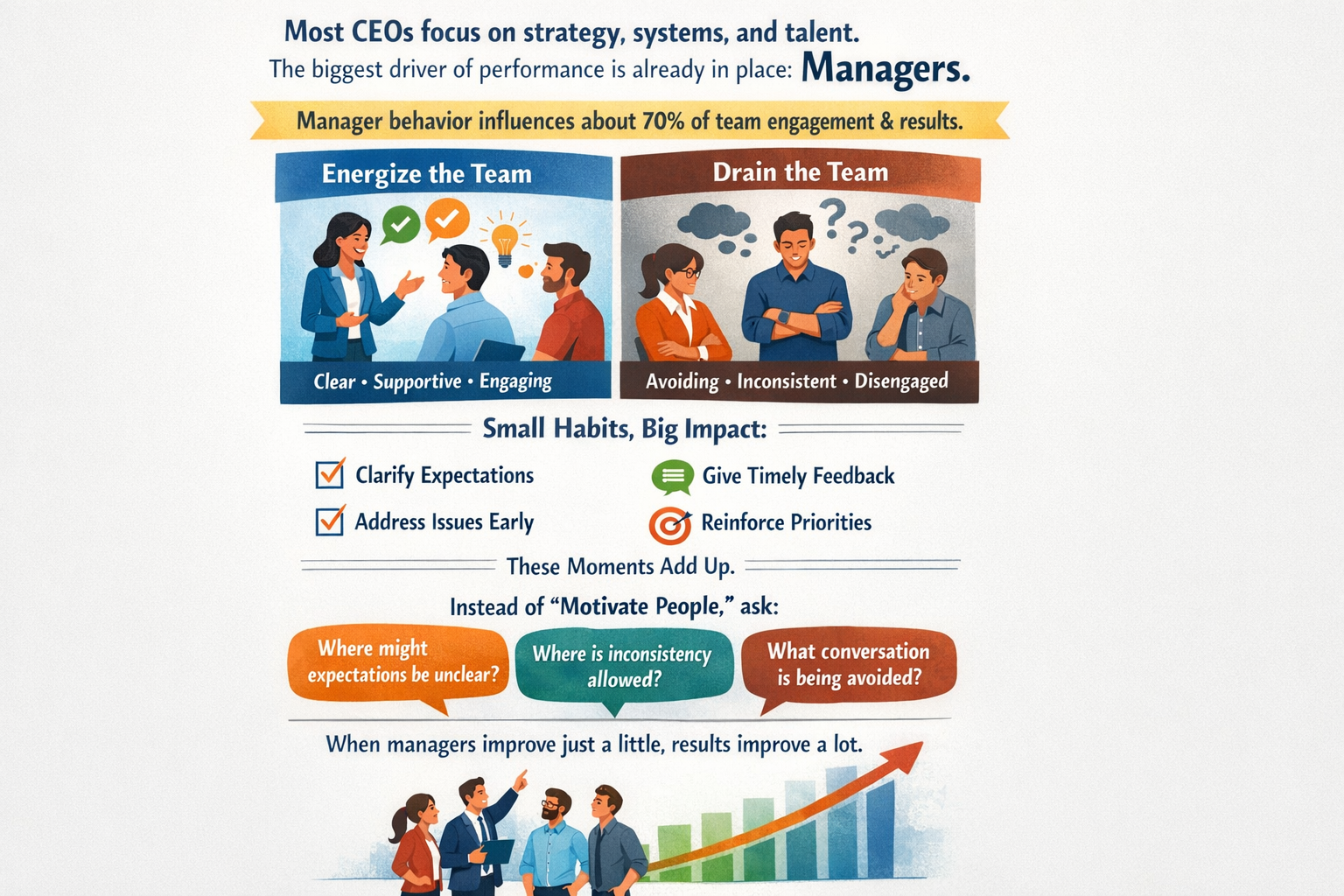Managers are the Secret Behind Employee Engagement

The term employee engagement relates to the level of an employee's commitment and connection to an organization. Employee engagement has emerged as a critical driver of business success in today's competitive marketplace. High levels of engagement promote retention of talent, foster customer loyalty, and improve organizational performance and stakeholder value.
So, how serious is the employee engagement issue? While leaders may be aware that "engagement" is necessary, the data provides an even stronger case. Recent research shows that 70% of American workers are disengaged – meaning they are emotionally disengaged from their managers and their company – showing up for the paycheck and little else. Of that 70%, 18% are actively disengaged and working against the company.
Let's look at a team of 11 people. Using these numbers, three team members are actively engaged, six are disengaged – simply showing up, and two are actively disengaged – working against the company's goals. Your team of 11 employees is creating lower productivity, decreased profitability, and lowered customer satisfaction.
We can understand the differences between engaged and disengaged employees by looking at their characteristics:
Engaged Behaviors
- Optimistic
- Team-oriented
- Goes above and beyond
- Solution-oriented
- Selfless
- Shows a passion for learning
- Passes along credit but accepts blame
Disengaged Behaviors
- Pessimistic
- Self-centered
- High absenteeism
- Negative attitude
- Egocentric
- Focuses on monetary worth
- Accepts credit but passes along blame
Think about your employees and the teams you have created. How many of your team members are exhibiting disengaged behaviors? And then imagine what would happen in terms of productivity and profitability if you could turn that around.
So, what is the solution? Research shows that disengagement occurs when management practices and organizational culture don’t empower and develop employees. And even more importantly, it is your managers behavior that builds organizational culture.
Managers are the secret behind increased engagement. When managers are taught and empowered to move from just managing the work to coaching and developing their employees, engagement increases significantly.
Investing time and resources to train your managers to be more effective will result in a more robust organizational culture and increased engagement. Equipping them with the tools to focus on coaching and developing their employees will result in a more engaged workforce, leading to higher productivity and profitability.
Managers are your most important asset in increasing engagement. Here are some of the benefits overall when your managers play a critical role in coaching and developing their teams:
- If a company increases employee engagement by 10%, research shows that results in $2,400 in annual profit per employee. Now imagine you can improve it by 20%, 30%, or more.
- Increased employee engagement and a strong relationship with their manager helps you to retain the employees you need and want in your company. And in today’s job market, that is even more critical.
- Increased productivity occurs when employees are engaged – with some impressive statistics:
- 57% more effort
- 41% fewer errors
- 37% decreased absenteeism
- 41% fewer accidents.
Employees don't leave companies; they leave their managers. Providing training to help your managers develop the skills they need to coach and develop their employees effectively will significantly benefit your company.


